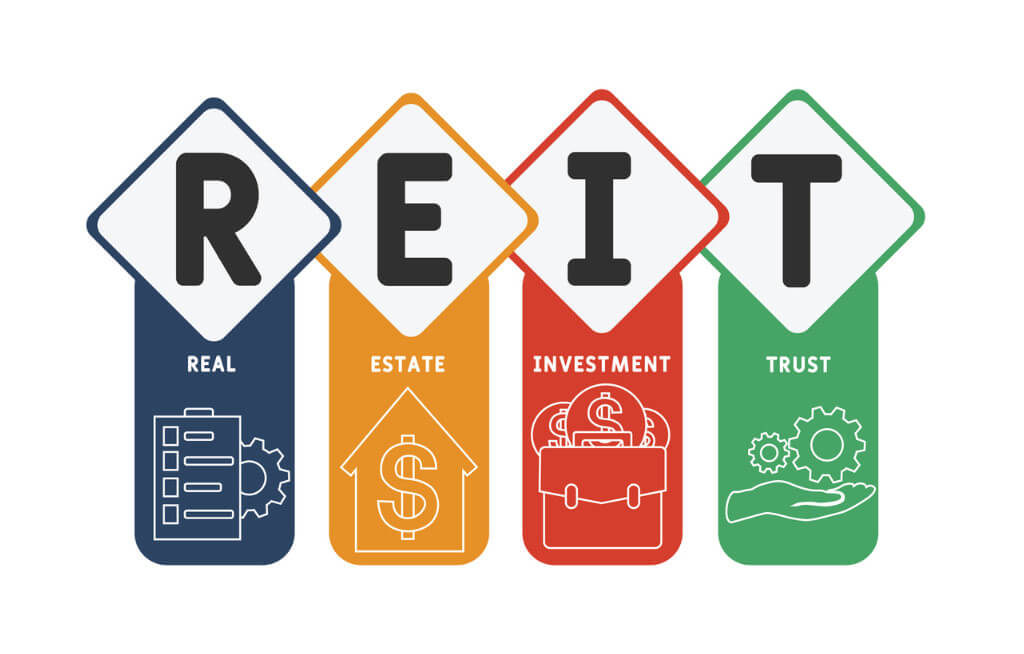- Investing in REITs in Pakistan
- Key Players of RMC
- How to Invest in REIT
- Type of REIT Schemes in Pakistan
- How do REIT Earn Money For You
- List of REIT Companies
Investors are finding equities and mutual funds risky options in this economic crisis and are opting for investment in real estate instead. With the introduction of REITs (Real Estate Investment Trusts) in Pakistan especially, many people now have direct access to this asset class. The biggest advantage of this investment option is that it offers lower risk and yields better returns, which makes it an excellent portfolio diversifier for investors. Despite these benefits, you have to create an investment strategy that fits your budget and goals. Graana.com, Pakistan’s smartest property portal, shares all details about how to invest in REITs in Pakistan.
Investing in REITs in Pakistan

REITs are corporations that own and manage various income-generating properties such as shopping malls, hotels, apartments, etc.
Basically, a REIT actually invests in physical real estate and distributes the rental income or capital gain to its shareholders.
Although, this investment is similar to stocks because you are buying the shares of a property that is managed by the trust. There are different types of REITs that you can invest in, such as public REITs that are traded on the national stock exchange. You can buy their shares just like stocks.
On the other hand, there are private REITs that aren’t traded on the stock exchange and require higher capital for investment. This is why only institutional investors can invest in these private REITs.
The investment in these trusts is managed by a REIT Management Company (RMC), which has a license from the securities and exchange commission.
Basically, the main responsibility of RMC is to identify the project and raise funds through an initial public offering (IPO).
They ensure that all regulations of REITs specified by the Securities and Exchange Commission of Pakistan (SECP) are met. Moreover, they ensure all the legal documents are duly signed and filed. Get to know how to calculate ROI in real estate?
Key players of RMC
To make sure these regulations are followed, every RMC has different key players that include:
Participant
Any person who is over the age of 18 years holds a CNIC or has a national tax number can become a part of the fund.
Trustee
In the case of REIT, any bank or financial institution can be appointed as the trustee after getting approval from SECP. They are responsible for offering investment options and distributing the returns on investment among the participants.
Custodian
A custodian in RMC is any person (or financial institution) who oversees all the investments. They act as watchdogs and ensure that the REIT is managed according to the guidelines specified in the trust deed. In this way, they protect the interest of the general public.
How to Invest in a REIT

In order to invest in a REIT in Pakistan, you need to follow the steps given below.
- REIT Management Company (RMC) first advertises the launch of the new REIT in newspapers with all the relevant information.
- After reading all the relevant information, the investors have to contact the RMCs or their authorised distributors for the application form.
- You have to fill out the form and submit it to the RMC or its authorised distributors. Before submitting the form, you should read the offering document to get a clear picture of the REIT’s investment objectives and policies.
- Once the form is submitted, you will be able to invest in a REIT.
Types of REIT Schemes in Pakistan
According to the Real Estate Investment Trust Regulations 2015, there are three types of REITs that can be offered in Pakistan. Following are the types of REIT schemes.
Developmental REIT
In this type of REIT, the land is bought by REIT for developing commercial, residential or industrial properties.
After the construction or refurbishment of the property, it is sold or rented to potential customers. The proceeds from the rent or sale are distributed to the investors in the form of dividends.
Rental REIT- Common Type of REIT Investment
In this type of scheme, REITs invest in residential or commercial real estate with the purpose of generating rental income.
The RMC buys the fully constructed property and rents it out to potential consumers. The rental generated from the property will be distributed in the form of dividends. Get to know Reit vs Direct Property Investment.
Hybrid REIT
This type of scheme includes portfolios of both rental and developmental REITs that are combined to create a better investment strategy.
How Do REITs Earn Money for You?
REITs raise funds by getting investment from the interested parties to buy or construct the property. After buying or constructing the property, it is sold or rented out to potential customers.
The investors get the return on investment once the property is sold or rented out by the RMC. The investors get returns in the form of dividends or capital gain.
The shareholders can also sell the units on the stock exchange if the net value of the asset appreciates. The proceeds from selling these units are called capital gain.
List of REIT Companies in Pakistan

SECP implemented new regulations for REITs in 2015 but, since then, there has only been one REIT in Pakistan. Currently, Arif Habib Dolmen REIT Management Limited is the only RMC providing rental and developmental REITs to investors in the country.
A developmental REIT, named Silk Islamic Development REIT, was launched last year for a housing project in Karachi. This is a joint venture between five groups: the REIT Management Company and four other groups including Yunus Brothers, Arif Habib Group, Liberty Group and Fatima Group.
If you’re planning to invest in this REIT, you can check the Arif Habib Dolmen REIT official website for all the latest updates.
The market of REIT is still new and there are 5 to 6 new players looking to enter the market.
For more updates regarding REITs in Pakistan, visit our blog.
FAQs
Here are some FAQs related to Reits in Pakistan
What is a REIT?
A REIT, or Real Estate Investment Trust, is a financial instrument that allows investors to pool their funds to invest in a diversified portfolio of real estate assets.
How are REITs regulated in Pakistan?
REITs in Pakistan are regulated by the Securities and Exchange Commission of Pakistan (SECP) under the REIT Regulations.
What are the benefits of investing in REITs?
Investing in REITs offers several benefits, including regular income distributions, portfolio diversification, professional management of real estate assets, and liquidity through trading on the stock exchange.
Can individuals invest in REITs in Pakistan?
Yes, individuals can invest in REITs in Pakistan by purchasing units of publicly listed REITs on the stock exchange or participating in private REIT offerings.
What types of real estate assets do REITs invest in?
REITs in Pakistan can invest in various types of real estate assets, such as residential properties, commercial properties, industrial properties, and infrastructure projects.
Are there any tax benefits associated with investing in REITs?
Yes, investing in REITs in Pakistan can offer tax benefits, such as exemption from capital gains tax on the sale of REIT units and tax pass-through status, where the income is taxed at the investor’s individual tax rate.
How are the returns from REIT investments distributed to investors?
The returns from REIT investments, including rental income and capital gains, are distributed to investors in the form of dividends on a regular basis.
Can REITs provide a steady income stream?
Yes, REITs are designed to provide a steady income stream to investors through rental income generated from the real estate assets in their portfolio.
What is the process of investing in REITs in Pakistan?
The process of investing in REITs involves opening a brokerage account, conducting research on available REITs, placing buy orders for REIT units, and monitoring the performance of the investment.
Are there any risks associated with investing in REITs?
Like any investment, investing in REITs comes with certain risks, including market risk, liquidity risk, and the potential for fluctuations in real estate values. It is important for investors to carefully assess their risk tolerance and conduct thorough due diligence before investing in REITs.





Comments are closed.